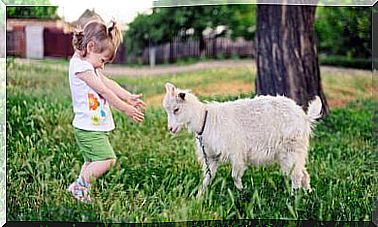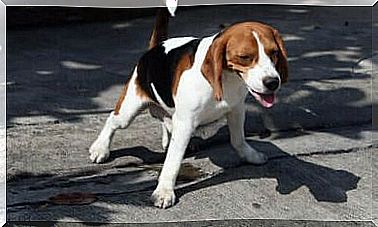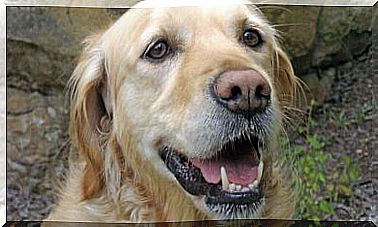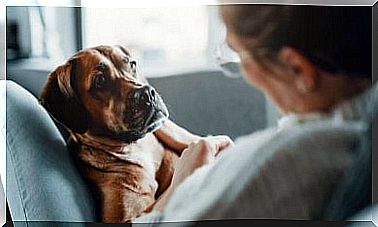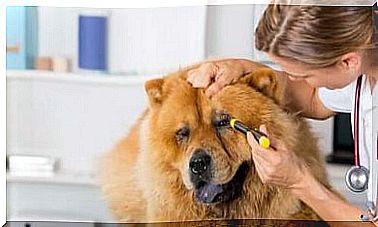Senile Dementia In Dogs

Senile dementia in dogs is one of the virtually unavoidable aspects of our best friends’ natural aging process. However, it is possible to take several steps to improve your quality of life during your old age.
The brain is an organ charged with multitasking. He is responsible for interpreting and translating external stimuli to other organs. It is associated with and controls all metabolic processes in the body.
One long life it is synonymous with many joys and shared moments. However, it also brings physical, psychological and emotional wear to the body, even the brain’s cognitive capacity. This rule applies to both humans and dogs.
What is Senile Dementia in Dogs?
Dementia is generically called all processes that lead to loss of memory and brain functions. Aging causes signs of dementia to naturally start to appear. Neurons die and the brain gradually loses the power characteristic of youth.

In the case of humans, Alzheimer’s is the brain disease that causes the most severe type of dementia. Neuronal degeneration is so acute that it can radically change a person’s personality and behavior, leading to severe identity disorders.
the beginning of dementia
In dogs, dementia is mainly characterized by the progressive loss of sensory functions. Vision and hearing are affected more quickly. Smell, which is the main sense of dogs, tends to resist more strongly.
In more advanced cases, the animal begins to lose cognitive function as well. Which, in fact, is a logical consequence of the degeneration of their senses. He becomes unable to recognize orders and demonstrates difficulty locating himself in space and time.
While the most accepted and common cause of dementia is aging, there are other risk factors as well. Among the most important are: unbalanced diet, intoxication, stroke, trauma and/or brain damage of different types.
What are the symptoms of senile dementia in dogs?
As we’ve said before, the symptoms of senile dementia in dogs influence habitual behavioral changes. Dogs usually enter maturity between 6 and 10 years of age. Usually, the larger the size of the pet, the faster the symptoms of old age appear.
Senile dogs may have difficulty hearing their owner’s calls and orders. And usually it’s not disobedience, it’s hearing loss.
The same can happen with your vision. The animal usually shows difficulty in orienting itself when walking. Because you don’t see the objects on your way, you can bump into them or collide with them, because you can’t dodge in time.
losing sensitivity
In a short time, the animal loses its sensitivity. Reactions to external stimuli such as noise, odors and the presence of other animals decrease; they even find it difficult to feel people in their territory.
Symptoms progress and severe dementia can cause the following symptoms:
- Temperament changes
- Hyperactivity or anxiety
- Lack of appetite
- Tiredness, lethargy and/or depression
- Loss of control over your physiological needs
- Loss of consciousness and random movements
- Memory failures, forgetting your own name and/or people you know
However, senile dementia in dogs can develop silently and only be noticed at a very late stage. Therefore, periodic visits to the veterinarian are essential to preserve your well-being. It is also about diagnosing the disease early.
Is there treatment for senile dementia in dogs?
Nothing can prevent aging. However, there are palliative treatments to curb the degeneration neuronal and improve their cognitive functions.
The veterinarian can administer so-called IMO – Monoamine Oxidase Inhibitors. These drugs have a neuro-protective action, as they reduce the action of free radicals.
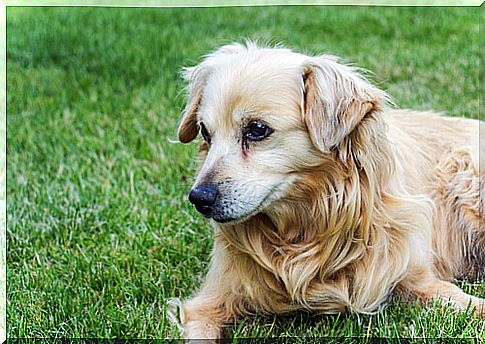
Complementarily, you can use the natural extract of Ginkgo biloba . This treatment improves brain oxygenation and may benefit cognitive functions.
It is worth remembering that the veterinarian is the professional trained to prescribe a specific and appropriate treatment for each animal.
How to prevent senile dementia in dogs?
A better quality of life in old age depends simply on adopting healthy habits from an early age. Thus, it is possible to avoid the risk factors that can accelerate the process of senile dementia in dogs.
A balanced diet, regular physical exercise and moments to unwind are effective preventive measures. It is always necessary to follow the vaccination schedule and carry out periodic deworming.


